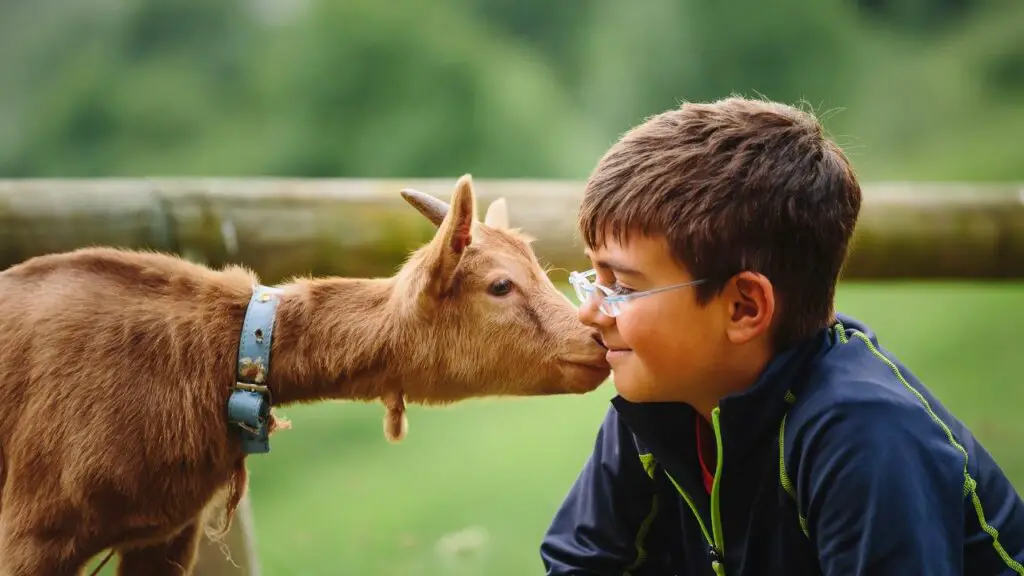Best cheap essay writing services are one click away, and parents around the world strive to provide their children with the best education and values. Among these values, fostering a love and respect for animals holds a special place. Teaching kids to appreciate the beauty of the animal kingdom not only nurtures their empathy but also instills a sense of responsibility and stewardship for the world we share with these creatures. In this article, we’ll explore various strategies and activities that parents can employ to teach their children how to love and respect animals, creating a foundation of compassion that will last a lifetime.
The Importance of Teaching Animal Compassion
Understanding the importance of teaching animal compassion is the first step for parents. Beyond the warmth that comes from loving animals, it’s crucial to recognize that this love extends to a broader understanding of empathy, kindness, and responsibility. Children who grow up with a deep appreciation for animals are more likely to become compassionate and responsible individuals.
Start Early: Animal-Themed Books and Stories
One of the best ways to introduce the idea of animal companionship and care is through the magic of storytelling. Animal-themed books and stories capture children’s imaginations and teach valuable lessons about empathy, friendship, and the intricate relationships between humans and animals. From classic tales like “Charlotte’s Web” to beautifully illustrated picture books, literature can be a powerful tool in nurturing a child’s love for animals.
Visits to Animal Sanctuaries and Zoos
Field trips to animal sanctuaries, wildlife reserves, and zoos offer an educational and engaging experience for children. These visits provide opportunities for kids to see animals up close, learn about their habitats, and appreciate the diversity of the animal kingdom. Observing animals in a safe and controlled environment can spark curiosity and a sense of wonder.
Responsible Pet Ownership
For families with pets, teaching responsible pet ownership is essential. Children can learn valuable life lessons by actively participating in the care of dogs, cats, or other companion animals. Feeding, grooming, exercising, and providing affection to pets not only strengthens the bond between children and their animal friends but also imparts a sense of responsibility and empathy.
Animal-Themed Arts and Crafts
Creativity knows no bounds when it comes to arts and crafts projects. Parents can encourage children to express their love for animals through hands-on activities. Whether it’s crafting animal masks, painting wildlife scenes, or creating animal-themed greeting cards, these creative projects allow kids to engage with animals in a fun and imaginative way.
Outdoor Adventures in Nature
Connecting with nature is a powerful way to nurture a child’s love for animals. Nature walks, hikes, and outdoor adventures provide opportunities for kids to observe animals in their natural habitats. Whether it’s birdwatching, identifying insects, or exploring local flora and fauna, outdoor activities instill a sense of wonder and curiosity about the natural world.
Volunteer Opportunities
Engaging in volunteer programs as a family can be a rewarding way to teach kids about compassion and responsibility toward animals. Many organizations welcome family volunteers to help with animal shelters, rescue efforts, and wildlife conservation projects. These experiences allow children to actively contribute to the welfare of animals in need while learning valuable life lessons.
Compassionate Eating
Teaching children about the concept of compassionate eating is another important aspect of fostering love and respect for animals. Parents can discuss the choices they make regarding food and introduce age-appropriate discussions about where food comes from. This opens the door to conversations about the welfare of farm animals and the importance of making informed and ethical food choices.
Pets as Family Members
Instilling the idea that pets are beloved family members is essential for children. Emphasizing the value of kindness, respect, and empathy toward animals within the household sets the stage for meaningful relationships with pets. Children who view their pets as family are more likely to treat them with care and love.
By incorporating these strategies and activities into their parenting approach, parents can help their children develop a deep and lasting love and respect for animals. This foundation of compassion not only enriches the lives of children but also contributes to a more compassionate and empathetic society where animals are valued, respected, and protected.
In conclusion, teaching kids to love and respect animals is a journey that begins with compassion and empathy. Just as we seek the best resources, including the guidance of top essay websites on Reddit, to provide our children with a quality education, we should also strive to impart the values that come from appreciating the animal kingdom. By introducing children to the wonder of animals through stories, visits, responsible pet ownership, creative activities, and outdoor adventures, we lay the foundation for a lifelong love and respect for all living creatures.
As parents, our role in nurturing this love for animals is not only beneficial for our children but also for the world we share with these remarkable beings. It instills in our children a sense of responsibility and stewardship, fostering a generation that will advocate for the welfare and conservation of animals. Through these efforts, we not only raise compassionate individuals but also contribute to a more empathetic and caring society, where animals are valued and protected for generations to come.




Leave a Reply